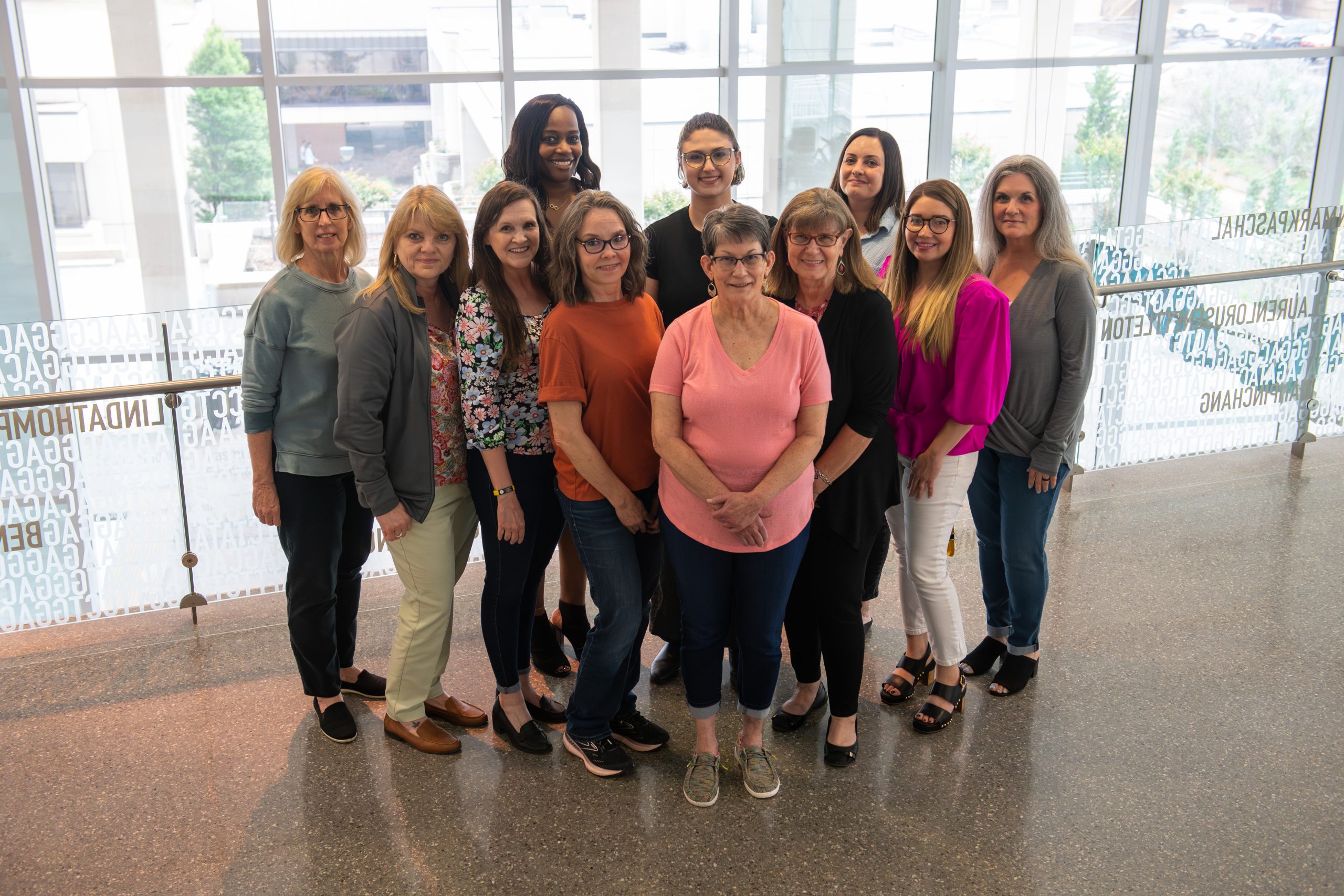Departmental administrators are vital to the success of OMRF’s research programs.
—
Her official title may be project coordinator, but Suzy Collins plays a far greater role within Genes & Human Disease: liberator.
“She frees me to concentrate on science,” Pat Gaffney says, “especially since I entrusted my calendar to her.”
The same could be said for two dozen other key members of OMRF’s scientific support staff: the administrative professionals in research programs who proofread and organize grant applications, update scientists’ biosketches, process invoices, file expense reports and coordinate meetings. Their numerous tasks often require the same precision as the medical research they help make possible.
For Courtney Griffin, having a trusted partner who keeps an eye on these kinds of details helps calm her when requests are coming from every direction.
“Knowing that certain tasks can be handled by someone who has terrific attention to detail and follow-through skills is an important source of reassurance,” she says. “Admins can be like glue. Because they often assist multiple labs, their knowledge grows with every new request they tackle, and they’re able to apply their experiences with one lab in helping another.”
To Suzy, who supports five OMRF labs, the ability to multitask is critical.
“You’re always juggling,” she says. “First it’s nonstop submissions. Then, if you get the grant, that starts a whole new process of reporting deadlines.”
Still, the grant process is much smoother than in years gone by, say Mary Flynn and Cheri Rutledge. They remember when the National Institutes of Health required the submission of eight copies of a grant — each sometimes an entire ream of paper — plus the manual insertion of color graphics printed on a separate copier. “I am so glad I never have to deal with that again,” says Mary.
Even if you don’t know her, you’ve likely seen Mary buried in a novel outside the Research Café. These occasional reading breaks refresh her mind during her busy days as a grants specialist for Arthritis & Clinical Immunology.
She first came to OMRF as a graphics assistant, then transitioned into providing administration support to scientists in what was then the Immunobiology & Cancer Research Program. Since joining Arthritis & Clinical Immunology in 2017, Mary has helped secure dozens of grants for its labs, organizing applications that sometimes exceed 1,000 pages.
It’s a lot of work, says Mary, but it’s also rewarding. “You work so hard on a grant, and then it’s funded. You know your people will have a job for five more years,” she says.
Suzy agrees. “One of the things I really enjoy is seeing the successes of my people,” she says. “When a scientist gets a grant or an award, when a grad student gets their Ph.D., when our high school interns or Fleming Scholars go off to college — it’s very rewarding to think, ‘Maybe I had a small little part in that.'”
Holly Smith who works with four Aging & Metabolism scientists, sums up her job as “making their lives easier.” Her favorite parts? Problem-solving and event planning. “I appreciate being a part of a team that goes the extra mile to support and value each other,” she says.
“That’s what OMRF means to me.”



